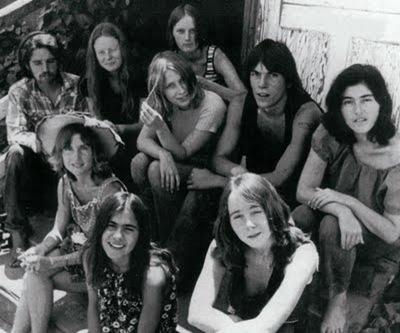The reason why cults and other mind-control systems seek out the young isn’t only because they’re energetic and lack familial responsibilities, but because they’re “impressionable.” What does that mean? When we’re not yet formed, when we haven’t had enough repetition of thought to set ourselves, ideas can be pushed into our brains–and pushed out–more readily than later in life. And as deprogrammers can tell us, once something does become deeply ingrained at that age, it’s a chore changing a mind. That’s why you see otherwise intelligent teens become Manson Family members or an American Taliban. It’s not a lack of intelligence, but a lack of experience. And that applies whether it’s a cult based on religion or sex or anything else, because it’s all about power.
From “The Master,” Marc Fisher’s painstaking and painful exploration of the Horace Mann sex-abuse scandal, a passage about one of the victims of a charismatic teacher who maintained control over some of his students even when they grew into adults, assembling them in a country house to be his makeshift ‘family”:
“The other original owner of the house, the bond trader, who spoke on the condition that he not be named, said that he first encountered Berman in tenth grade, when his relationship with his parents was crumbling. ‘I didn’t know it, but I was looking for someone like Berman, who had authority, who was a leader,’ he says. ‘In a school that made everyone think he was special, this was the hardest guy to have approve of you. I needed somebody to talk to and he offered himself as a counsellor.’
Like the other boys, he was invited to Berman’s apartment, in eleventh grade. ‘We didn’t think of ourselves as gay, and I never was, though I engaged in homosexual activities, obviously,’ the bond trader says. Berman would describe the sex as a natural part of the teacher-student relationship, dating back to ancient Greece. ‘We might spend a night and then go home to our parents, and other kids would come in,’ he says. ‘He took great pleasure in stealing kids from the parents he hated.’
The trader also says that, while he lived at Satis House, Berman kept him on a restricted diet, to hold his weight at about twenty-five pounds below the level at which he had played football in college. In the early years of their relationship, he says, Berman regularly beat him with a belt buckle. Berman wrote to me that this wasn’t true: ‘I do not recall ever striking anyone with a belt buckle; I guess I’d remember if I had. (Excellent idea, though.)’
After four years at Satis House, the trader left, and he has spent the subsequent decades trying to figure out why he stayed so long. ‘There was always the threat of excommunication, lack of approval, castigation,’ he told me. ‘We weren’t even allowed not to like the food he made—and it was awful. And there was always alcohol, lots of it. You drank one woolie and you were relatively pliable after that. I never knew I was part of a cult till I got out.'”

